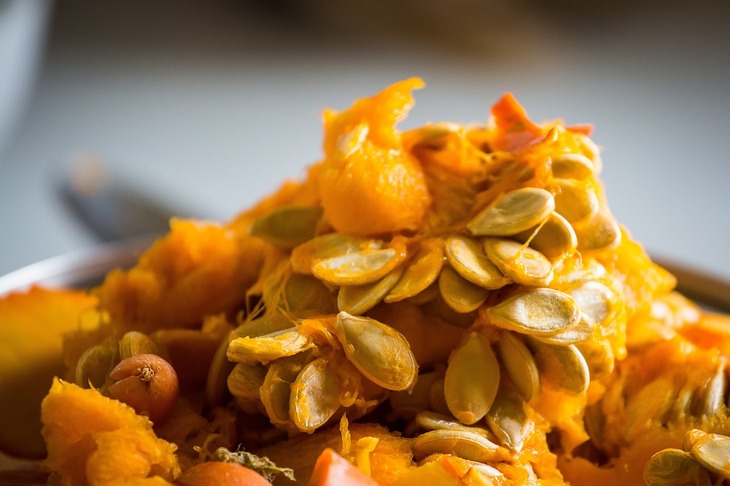Pumpkin seeds, often overshadowed by their bright orange "mistress", are a real treasure trove of useful substances.
Their regular consumption can bring significant health benefits.
Who should pay attention to these little grains?

Pumpkin seeds have a unique composition, rich in vitamins, minerals and other biologically active substances. They contain:
• Vitamins: B vitamins (B1, B2, B3, B6, B9), vitamin E, vitamin K.
• Minerals: magnesium, zinc, iron, manganese, phosphorus, potassium, copper.
• Amino acids: seeds contain essential amino acids needed to build proteins.
• Fatty acids: contain mono- and polyunsaturated fatty acids, including linoleic and oleic.
• Antioxidants: carotenoids, tocopherols and other antioxidants that protect the body from free radicals.
Due to their high magnesium and potassium content, pumpkin seeds can help normalize blood pressure and improve heart function.
Unsaturated fatty acids help reduce the level of bad cholesterol in the blood.
Zinc, found in pumpkin seeds, plays an important role in maintaining the immune system. It is involved in the production of immune cells and protects the body from infections.
Zinc is also necessary for the normal functioning of the prostate gland. Pumpkin seeds can help reduce the risk of developing prostate adenoma.
Pumpkin seeds are beneficial for women during menopause. They contain phytoestrogens, which can help alleviate the symptoms of hormonal changes.
Thanks to their magnesium and tryptophan content, pumpkin seeds can help improve sleep quality and combat insomnia.
The fiber contained in seeds helps to normalize bowel function, improves peristalsis and helps prevent constipation.
Who Should Include Pumpkin Seeds in Their Diet
• For people with cardiovascular diseases: to maintain the health of the heart and blood vessels.
• For those who want to strengthen their immunity: to protect against infections.
• For men for prostate health: for the prevention and treatment of prostate diseases.
• For women in menopause: to relieve symptoms.
• For people experiencing sleep problems: to improve the quality of sleep.
• For those who want to improve digestion: to improve bowel function.
Pumpkin seeds can be eaten raw, fried or dried. It is better to fry the seeds yourself in a dry frying pan or in the oven, avoiding adding oil and salt.
Seeds can be added to salads, porridge, baked goods and other dishes. It is important to observe moderation, as excessive consumption of seeds can cause digestive problems.
Despite all the beneficial properties, pumpkin seeds have some contraindications.
It is not recommended to consume seeds for people with individual intolerance, as well as for acute diseases of the gastrointestinal tract.


